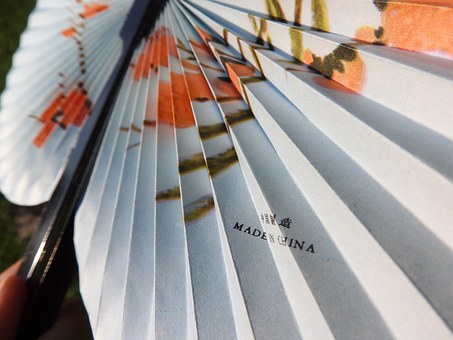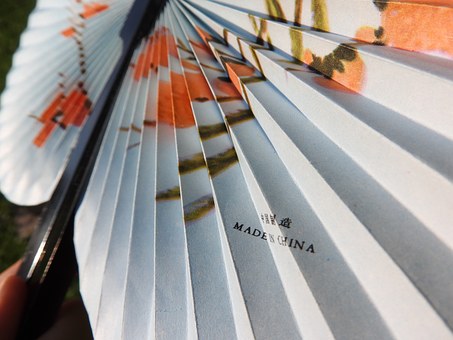
pixabay
The World Trade Organization (WTO) has concluded that the duties imposed by the United States in 2018 on a number of goods from the PRC do not comply with international trade rules. The lawsuit concerns two lists of goods on which Washington imposed duties of 25%: first time in June (in relation to imports of $ 34 billion), and then - in September 2018 ($ 200 billion). "The United States has not proven that the measures introduced are justified," the WTO panel of arbitrators said in its conclusion.
As a reminder, the duties were introduced by the United States with reference to national legislation allowing retaliatory measures in case of violation of technology transfer rules and to protect intellectual property. China requested formation of a panel of arbitrators in December 2018, and it was assembled in June 2019. The United States has not filed a single counterclaim against China's foreign trade countermeasures.
In China, the arbitrators' decision was expectedly called objective and fair, indicating that Beijing respects the WTO rules. By contrast, US Trade Representative Robert Lighthizer said the United States should be allowed to defend itself against unfair trade practices and that the Trump administration “will not allow China to use the WTO to abuse the interests of American workers, businessmen and farmers.”
According to the verdict of the WTO dispute settlement body, the United States now needs to "bring its actions in line with their obligations."
However, this is unlikely to happen: since December 10, 2019, due to the US blocking the process of appointing new arbitrators, the appellate instance of the organization stopped its work. Although the main dispute settlement body continues to work, the implementation of its decisions in such conditions actually becomes a voluntary matter, because it is the decision of the WTO appeal instance that is considered final.
Against the background of new bans and restrictions (in particular, on the use of the Chinese application TikTok in the United States), the trade agreement between the two countries, signed in January this year, was also under threat. According to the document, China has pledged to increase purchases of American goods by about $ 200 billion compared to 2017 in exchange for Washington's refusal to hold the latest round of tariff increases and halving (to 7.5%) the tariff on Chinese imports in the amount of $ 112 billion.
During the trade war between the two countries, the average US tariff for Chinese products increased from 3.1% to 21%, and China's for American goods - from 8% to 21.1%. According to data for eight months of this year, China-US trade turnover decreased by 3.5% compared to the same period in 2019, including exports from China - by 3.6% (to $ 266 billion), and imports of American goods in China - by 2.9% (to $ 78 billion).
source: wsj.com, reuters.com
As a reminder, the duties were introduced by the United States with reference to national legislation allowing retaliatory measures in case of violation of technology transfer rules and to protect intellectual property. China requested formation of a panel of arbitrators in December 2018, and it was assembled in June 2019. The United States has not filed a single counterclaim against China's foreign trade countermeasures.
In China, the arbitrators' decision was expectedly called objective and fair, indicating that Beijing respects the WTO rules. By contrast, US Trade Representative Robert Lighthizer said the United States should be allowed to defend itself against unfair trade practices and that the Trump administration “will not allow China to use the WTO to abuse the interests of American workers, businessmen and farmers.”
According to the verdict of the WTO dispute settlement body, the United States now needs to "bring its actions in line with their obligations."
However, this is unlikely to happen: since December 10, 2019, due to the US blocking the process of appointing new arbitrators, the appellate instance of the organization stopped its work. Although the main dispute settlement body continues to work, the implementation of its decisions in such conditions actually becomes a voluntary matter, because it is the decision of the WTO appeal instance that is considered final.
Against the background of new bans and restrictions (in particular, on the use of the Chinese application TikTok in the United States), the trade agreement between the two countries, signed in January this year, was also under threat. According to the document, China has pledged to increase purchases of American goods by about $ 200 billion compared to 2017 in exchange for Washington's refusal to hold the latest round of tariff increases and halving (to 7.5%) the tariff on Chinese imports in the amount of $ 112 billion.
During the trade war between the two countries, the average US tariff for Chinese products increased from 3.1% to 21%, and China's for American goods - from 8% to 21.1%. According to data for eight months of this year, China-US trade turnover decreased by 3.5% compared to the same period in 2019, including exports from China - by 3.6% (to $ 266 billion), and imports of American goods in China - by 2.9% (to $ 78 billion).
source: wsj.com, reuters.com


















